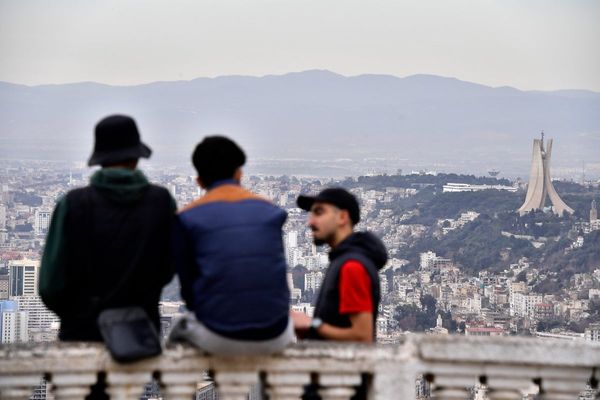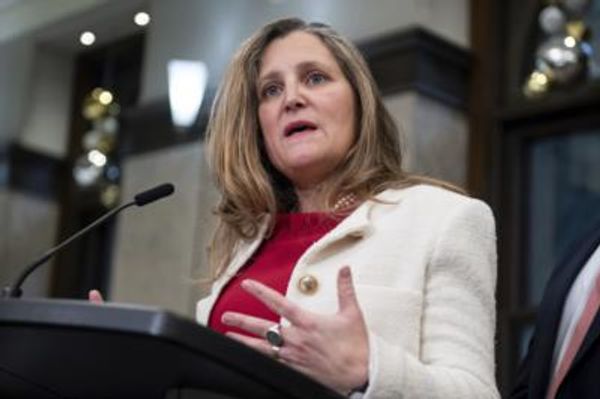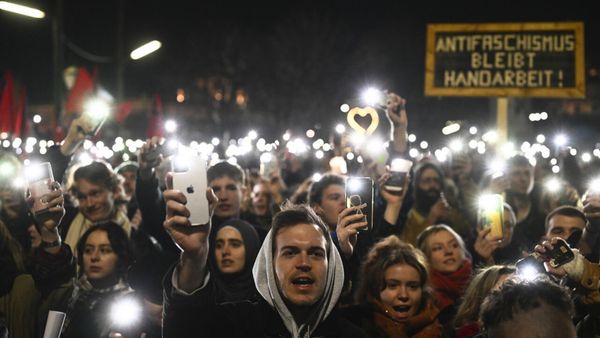
“It’s not like USAID is going to invade somebody,” the U.S. Agency for International Development (USAID)’s Obama-era chief Gayle Smith told the New York Times in April.
Mexican President Andrés Manuel López Obrador is apparently not so sure.
U.S. organizations like USAID, the National Endowment for Democracy, the Ford Foundation, and the MacArthur Foundation have long had funding agreements with civil society organizations in Mexico—a feature of bilateral relations for some 60 years. Major civil society efforts in Mexico promoting press freedom, access to justice, government transparency, corporate responsibility, and freedom from gender-based violence are supported in part or in whole by such funding initiatives. And they have been for some time.
Longstanding as these partnerships may be, López Obrador has recently taken to railing against foreign sources of funding for civil society organizations, claiming Mexico’s sovereignty is at risk. The president’s long-running accusations that various foreign agencies are attempting to undermine his government culminated in a diplomatic note sent in May to the U.S. Embassy in Mexico. Speaking at a press conference, López Obrador blamed the U.S. government for “an act of interventionism that violates our sovereignty.”
The alleged “act of interventionism” is USAID’s provision of funds to the nonprofit organization Mexicans Against Corruption and Impunity (MCCI). In 2018, MCCI received a three-year grant of $2.3 million through the agency’s designated funds to support anti-corruption activities in Mexico. López Obrador also criticized Article 19, a nongovernmental organization that defends freedom of expression and whose work had been cited by the U.S. State Department in its annual human rights report.
López Obrador’s public accusations have a political purpose. The president appears to be confronting his critics in civil society in part by tapping into resentment among Mexicans over their country’s unequal interdependence with the United States. Opinion polls suggest it may be working. Mexico goes to the polls this weekend, and López Obrador’s party, Morena, appears likely to gain more state governorships, more mayorships, and more deputies in the national Congress. Still, it might not be the supermajority the president requires to realize his extensive ambitions. López Obrador wants to continue reducing government spending, ramping up fossil fuel use, and expanding the role of the armed forces. Some speculate he has also been dialing up attacks on the United States in the hope of gaining the ground he needs.
López Obrador’s statements about USAID and the National Endowment for Democracy (NED), a U.S. government-funded nonprofit, also draw on public anger about U.S. intervention in Latin America. Although USAID might not be “going to invade somebody,” there is no doubt the agency has been criticized for buttressing U.S. military goals. As an exercise of soft power, U.S. government funding, particularly through USAID, has been implicated in attempts to unseat Venezuela’s and Cuba’s government in recent years.
The president’s recent rhetoric comes as the government shifts its policy stance toward the United States as well. In January, López Obrador signed into law a bill passed by the national Congress to restrict the activity of “foreign agents” on Mexican soil, saying Mexico would not cooperate on cross-border drug crime investigations “without respect for our sovereignty,” following the arrest of Gen. Salvador Cienfuegos on drug and money-laundering charges in the United States. Cienfuegos was later returned to Mexico, where he was cleared of the charges, much to the displeasure of U.S. prosecutors. Meanwhile, U.S. Trade Representative Katherine Tai recently raised a U.S. energy industry complaint with Mexico’s economic minister after companies said recent changes to Mexico’s electricity and hydrocarbons laws—changes suspended by Mexico’s courts—have created difficulties operating in the sector.
Beyond an attempt to score political points by going on the offensive against the United States, the features of López Obrador’s discourse—state-sponsored repression of independent journalism and widespread misinformation campaigns—nullify his claim to protect the country from destabilization by outside forces.
In the case of MCCI, the diplomatic note sent on May 6 was ostensibly triggered by an article in Contralínea magazine, which reported MCCI is partly funded through USAID and the NED. The article also explained MCCI was led from 2019 to 2020 by Claudio X González Guajardo, a businessperson from a political family who also heads a coalition of organizations known as Sí por México, which strongly opposes López Obrador.
López Obrador’s note stated “members of [MCCI], such as Claudio X. González, have been explicit in their political militancy against the Mexican government.” The note asked the embassy to confirm whether it has been supporting MCCI and, if so, requested it “consider suspending” the funds in the spirit of mutual respect and nonintervention. At his daily morning press conference on May 7, López Obrador said the United States is “promoting a coup” by providing funds to MCCI. “That is why we are asking for clarification. No foreign government can give money to political groups in another country.” (In a statement published on Twitter, MCCI said “we strongly reject the use of concepts such as meddling, interventionism or coup-plotting, which have been used … to disqualify our work.”)
USAID programs in the last few years have been dedicated to “[supporting] Mexican efforts to address key challenges to improving citizen security” to “help communities resist the effects of crime and violence” and to “protect citizen’s rights.” With a new presidential administration in Washington, there will inevitably be discussion about the allocation of USAID funds. Several days after López Obrador’s note, Mexican media reported that Bruce Abrams, USAID’s mission director in Mexico, said in a cross-agency meeting organized by the Mexican Secretariat of Foreign Affairs that “a civil organization that is against the government or against the private sector is not the answer for Mexico’s long term” and said the agency is “reevaluating its priorities” as a new cross-border relationship takes hold under U.S. President Joe Biden. It’s unclear whether he was referring to any specific organization or initiative. USAID has been contacted for comment.
López Obrador’s accusations of coup-mongering have not been restricted to the MCCI. The president has made similar statements in the past 12 months about Article 19 and groups opposing his Tren Maya mega-project. In late March, López Obrador claimed Article 19, which campaigns for the safety of reporters in the most deadly country in the world for journalists, is “supported by foreigners” and aligned “to the conservative movement that is against” his government. He was specifically hitting back at the U.S. State Department’s 2020 Mexico country report, which criticized the country for its rule-of-law problems; it is estimated that 94 percent of crimes in 2020 went either unreported or uninvestigated. The State Department document specifically cited a report by Article 19, where the organization recorded a 45 percent increase in aggressions against journalists compared to 2019.
For its part, Article 19 found that, in 2020, there were coordinated attacks by public functionaries on social media against former employees of the state-funded news agency Notimex and against current employees who were then on strike. The staff’s union and many journalists covering the issue claimed some employees had been unfairly fired or harassed by López Obrador’s appointed management. Article 19 has criticized López Obrador for refusing to condemn the attacks and for supporting Sanjuana Martínez, the agency’s director who is against the union. Article 19 researchers also alleged the editor in chief influenced the work of the news agency, writing “Martínez undermined Notimex’s editorial independence, ordering journalists to avoid reporting on particular topics, including on public institutions and Mexican officials.”
López Obrador’s hostility has had consequences. The impacts of the president’s March comments on Article 19 and on freedom of expression are grave, said Paula Saucedo, a protection and defense officer at Article 19. A growing percentage of the incidents of aggression against journalists documented by the organization “are perpetrated by individuals in society—people coming up randomly to reporters on the street and saying, ‘why are you against my president, why are you against the development of the country?’”
Like most civil society organizations in Mexico, Article 19 has funding relationships with numerous international organizations, including USAID, the Ford Foundation, Heinrich Böll Foundation, and Google, along with several other foreign governments, such as Ireland, Britain, and the Netherlands. Inti Cordera, executive director of the international documentary film festival DOCSMX, said such arrangements are simply pragmatic. “We found NED because we were looking for funding and they had funding,” Cordera said. “We found there was a correspondence with our values, which are also to promote democracy.” There’s no other particular agenda involved in the relationship between NED and DOCSMX, he added.
López Obrador’s rhetoric against foreign funding sources for civil society organizations in Mexico also begs the question of where money for these efforts might otherwise come from. Within the first year of his administration, López Obrador cut funding to social programs, leaving thousands of civil society organizations scrambling to resource their work in the health, women’s rights, human rights, Indigenous advocacy, social welfare, science, and culture fields—indeed, causing many to seek funding from outside of Mexico to continue to stay operational.
“There has definitely been a departure from providing public resources for this work, even though there is a tacit promise to the Mexican people in the constitution to develop culture,” Cordera said, adding that ideally civil society would have more funding from within Mexico. Cordera also sees room for building a “donor culture,” in which crowdfunding and dollar-for-dollar fundraising (where the government matches donations from private citizens) become more common. As a sector that promotes democracy and transparency and campaigns for social justice, “civil society is the Mexican government’s biggest ally” by supporting the population where the state does not or cannot.
López Obrador may not see it that way. But civil society organizations in Mexico remain undaunted by the president’s criticisms. “We are not going to stop because the president is doing what he’s doing,” Saucedo said. “On the contrary—we will continue to do our job to defend freedom of expression and the right to information.”







